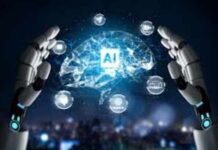
Artificial Intelligence (AI) has undeniably become a transforming force across industries, promising efficiency, innovation, and competitive advantage.
With its pervasive influence, one might assume that AI expertise is now a prerequisite for MBA graduates entering today’s job market. However, the latest GMAC Survey reveals a different reality.
AI in Business
Artificial Intelligence technologies such as machine learning, natural language processing, and predictive analytics are revolutionizing business operations. Companies across sectors are increasingly integrating AI into their strategies to enhance decision-making, automate processes, and personalize customer experiences.
The MBA Perspective
Traditionally, MBA programs have been at the forefront of business education, preparing graduates with a comprehensive understanding of management, strategy, finance, and marketing. In recent years, there has been a growing emphasis on integrating technology into the MBA curriculum to meet the demands of a digital economy.
Survey Findings
- According to a survey, only 30% of MBA graduates felt adequately prepared in AI skills upon graduation. This statistic highlights a significant gap between the expectations of industry and the current educational offerings in MBA programs.
- The latest Graduate Management Admission Council (GMAC) Corporate Recruiters Survey has revealed that while AI is not yet a critical skill for current graduates, its importance is expected to skyrocket in the coming years, reported ToI.
- Currently, AI remains second-to-last among 22 skills surveyed.
- A notable 33% of recruiters plan to hire more MBA graduates in 2024 compared to last year, reflecting a growing appreciation for the skills these graduates bring to the table.
- Contrary to popular belief, employers recognize the importance of Artificial Intelligence, they prioritize broader business acumen and leadership qualities over technical AI skills when hiring MBA graduates. This sentiment reflects the belief that AI can be taught on the job, whereas strategic thinking and decision-making are harder to cultivate.
- Many MBA programs have started integrating AI courses into their curriculum, but the depth and focus vary widely. Some institutions offer specialized tracks or concentrations in Artificial Intelligence and analytics, while others provide optional courses or modules.
- Industries such as finance, healthcare, and marketing are actively seeking MBA graduates who can leverage AI to drive innovation and growth. However, there remains a disconnect between the skills taught in MBA programs and those demanded by employers in the AI-driven marketplace.
- According to a recent survey, Artificial intelligence is defined as the ability to leverage Artificial Intelligence technologies and platforms for data analysis, predictions, and process automation. The said skill set is currently considered important by only 26% of global employers for GME graduates.
The Role of Continuous Learning
Given the rapid evolution of AI technologies, the concept of lifelong learning has never been more relevant. MBA graduates are increasingly expected to stay abreast of Artificial Intelligence advancements and adapt their skills continuously.
Also Watch: How GenAI Transforms Organisation Culture, Click Here
Professional development opportunities, such as workshops, certifications, and online courses, play a crucial role in bridging the gap between formal education and industry requirements.
What’s in the Future
Looking ahead, the integration of Artificial Intelligence into MBA education is likely to intensify. Business schools are under pressure to equip graduates with both technical expertise and strategic foresight to navigate an increasingly complex business landscape.
As AI continues to evolve, so too will the skill sets required of MBA graduates, emphasizing the importance of adaptability and interdisciplinary knowledge.
Wrapping Up!
While AI proficiency is undoubtedly valuable in today’s business environment, recent surveys indicate that MBA graduates may not yet possess the necessary skills at graduation. The gap between educational offerings and industry demands underscores the need for continuous learning and adaptation in the field of AI.
As MBA programs evolve to meet these challenges, the role of AI in business education will undoubtedly become more prominent, preparing future graduates to lead in an AI-driven world.
In summary, while AI remains a critical tool for business transformation, its integration into MBA education is still evolving. As such, the journey to fully incorporate AI as a core skill set for MBA graduates continues, reflecting both the opportunities and challenges presented by this rapidly advancing technology.
Note: We are also on WhatsApp, LinkedIn, Google News, and YouTube, to get the latest news updates, Subscribe to our Channels. WhatsApp– Click Here, Google News– Click Here, YouTube – Click Here, and LinkedIn– Click Here.








